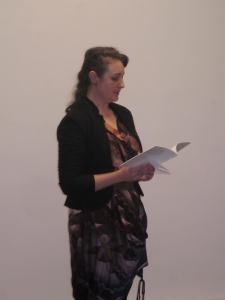To my hen-flock
Blithe they are, but spirits?
Birds they hardly are,
calling not in lyrics,
but with prosaic care
to put on record every moment’s find or fear,
grounded throughout, perching
awkwardly at evening
on their roosts, and lurching
squawking, wings wild-beating,
as soon as morning breaks, back to the earth’s receiving.
Far from here, the sky is
no threat, not forbidding
but no temptation either;
like the softest wing
of a mother hen it holds itself above them, brooding,
keeping all below it
close. Not for my birds
the rapture of a poet
by the sublime stirred
to reach beyond the mundane to put into words
thoughts beyond his thoughts,
song beyond his song;
sweetly from their throats
my hens cluck all day long
about the smaller pleasures that to them belong.
Should the world not listen
nothing would be lost,
still the earthworm glistens,
still flies by the moth,
and to the hen beside her each hen murmurs as they roost;
should the world not listen
I will still be soothed,
learning some small lesson
best put into prose,
that beauty’s not the only thing that counts as truth.
Author bio: Anna Jackson is a poet, essayist, and fiction and academic writer. She teaches in the English Department at Victoria University. Author of five collections, her most recent volume of poetry, Thicket (Auckland University Press), was shortlisted for the New Zealand Post Book Awards in 2012.
Note from Anna: This ode to a hen-flock is a response to Shelley’s ode, “To a Sky-lark,” which begins
Hail to thee, blithe Spirit!
Bird though never wert –
That from Heaven or near it
Pourest thy full heart
In profuse strains of unpremeditated art.
It is a poem that again and again seems to me poised on the brink of silliness – “bird thou never wert”? – and yet every stanza lifts and falls its way towards the wonderful out-pouring of its last, long, alexandrine line in a way that I find beautiful. So when my friend Sonia Johnson, whose year-long project “A Formal Year” involves writing a poem in a different form every week, took on the challenge to write a poem using the alexandrine, I thought I would try writing in Shelley’s metre.
I have four hens I am very fond of, and I thought it would be funny to see what happened if Shelley’s beautiful verse form were used to write about hens rather than a skylark. The skylark becomes, in Shelley’s poem, a symbol for the poetic ambition to transcend the self in song, to give the self over to the creation of beauty, and yet, paradoxically, through doing so, to make a name for oneself forever, so that “the world should listen then, as I should listen now.” In contrast, an ode to hens can only celebrate more mundane, more humble pleasures – prose not poetry, ordinary conversation (or clucking) not elevated song, a grounded aesthetic not the soaring transcendence of the lark.
Here is a link to Shelley’s poem: http://www.poetryfoundation.org/poem/174413
And here is a link to Sonia Johnson’s project blog: http://aformalyear.wordpress.com/
Note from Paula: My eye first took in the visual flitter of lines on the page, scanning to and fro, before settling in to the words themselves. Shelley’s alexandrine form gives an other-worldly pitch for the ear, syntactical choices that mark a time elsewhere. That is one lure. Then there is the way you are drawn into an intimate space (the poem itself, and that of the hens in the backyard). The form’s regularity, that delicious metrical pattern, sings the regularity of day in day out, of the routine of hens. On the one hand, this is a celebration (the joy) of the mundane, of daily business but the hen is also a transcendental stepping stone to poetic musings. And then. And then it is the hen in all its beauty (a hen is a hen is a hen). The poem is replete with aural lures (moth/lost; birds/ stirred) and the lure of tropes (the sky likened to the wing of a mother hen). Above all, it is a poem of terrific movement– aurally, visually, linguistically, philosophically and temporally (pulling Shelley into a contemporary backyard). The poem is a work of beauty.
NZ Book Council author page
AUP page
Poetry Archive page
Arts on Sunday interview











